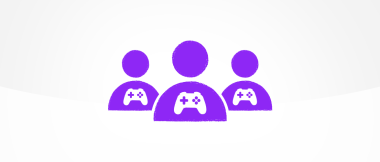A parent guide to gaming mods
Downloading “mods” – modifications – created by other gamers can be a fun and creative way to enhance your gaming experience, deepening your connection with a game and its surrounding community.
The practice has become increasingly popular, with top-tier game developers and publishers such as Bethesda embracing the modding communities for popular titles like Skyrim and Fallout.
Modding can be a legitimate route into the gaming industry. Gaming distribution platform Steam offers workshops and allows talented mod creators to sell their creations to players. Developer Rockstar Games recently paid a modder $10,000 after they developed a way to improve loading times on the PC version of Grand Theft Auto Online. However, not all developers and platforms are as welcoming.
While they are generally created out of a sense of love and enjoyment of that particular game, mods can also contain adult or explicit content – which can be easily inserted into a game targeted at younger players.
Here’s what parents need to know.
![]()
What are mods?
“Mods” are created when someone alters the code of a game. They are generally designed to introduce new experiences, accessories or settings – such as adding mythical creatures to your Minecraft worlds, introducing realistic weather systems to Skyrim or giving your Sims characters a wider range of emotional responses. More significant mods can alter gameplay itself.
A quick Google search of “game title + mods” may yield hundreds of options. They are often free to download and can be inserted into a game with just a few clicks.
Users decide whether to install or uninstall mods, making them different to content updates published by the game’s developer (known as ‘patches’) which are downloaded automatically. Patches change the code of a game, meaning mods can stop working as a result of a patch being installed. The mod’s code also needs to be updated for it to continue to work.
Listen to Parent Zone's podcast, Tech Shock.
Are mods illegal?
Modding’s legality varies from country to country. In the UK and US it isn’t strictly illegal, as long as it doesn’t infringe on a game’s copyright – but to platforms and developers there can be a fine line between modding and hacking. In Japan, however, modding could lead to a fine or even a prison sentence.
The establishment of official modding communities like Bethesda’s Creation Club and platforms such as Steam has helped by providing controlled environments for modding, deterring illegal activities.
Mods are traditionally applied to PC games, though this is starting to change in the wake of Bethesda’s move to include its games’ modding communities. Xbox calls mods “fun” and gives advice to gamers using them, while making it clear that they are not official products or content. Other consoles, such as PlayStation and Nintendo, take a stricter line over concerns around mods’ ability to “break” a game or include unmoderated content.
What are the risks?
Adult content
The biggest concern around mods is the possibility of adult, explicit or age-inappropriate content being added to a game.
Perhaps the most common modification across the spectrum of gaming, found from Fallout 3 to Minecraft, is to sexualise a (usually female) character’s costume, or remove their costume entirely. Other mods can make characters’ appearances more anatomically accurate, or simulate sexual activity – which, needless to say, can be used to great effect in combination. Others push this even further, actively seeking to degrade characters’ appearance or demonstrate sexually deviant scenes.
Other types of mod can increase the level of violence and brutality, or be simply disturbing. For example, one mod available in The Sims turns toddler characters into murderous zombies. While it might seem humorous, younger players on shared devices, who might not realise certain mods have been downloaded, could find these changes and images distressing.
While a game’s age rating gives players – and parents – appropriate warning about what kind of content to expect, playing games that have been modded means such content could pop up unexpectedly.
Malware
Mods are sometimes referred to as DLC or “downloadable content”. Accessing content in this way could leave your device exposed to malware or viruses.
For example, around 20 apps on Google Play claiming to be mods for Minecraft were in fact found to contain malware. Once downloaded, the malicious “app” icon deleted itself, making it difficult to identify the source of the problem – and remove it.
In its guidance to gamers using mods, Xbox warns that personal data may be exposed or accessed by the mod’s creator.
If your child is interested in gaming mods, ensure they are downloading them from reliable sources and that the computer or device they are using has appropriate virus protection software in place. Talk to them about the potential danger viruses can pose, as well as the importance of thinking critically about whether something online may be potentially harmful.
Enhancing gameplay
Sometimes players download alterations to give themselves a competitive advantage over others in multiplayer games – for example improving aim or enhancing their chosen weapon. This can cause tensions to rise.
Other players feel that adding mod after mod can alter a game so dramatically that it is no longer recognisable – making it feel “inauthentic” and detracting from the “pure” version of the game.
When automatic updates (patches) are downloaded, they change the game’s code, so any mods being used also need to be updated. So-called “downgrade mods” can get around this issue and enable players to play an older version of the game, but it is worth noting that mods that remove patches could break the terms and conditions and lead to players being banned.
What else do parents need to know?
Coding skills
Modding can be a gateway to coding and programming – and if your child enjoys creating mods of their own, it could be the first step towards a career in game development.
The modding community is generally a supportive one, with creativity, imagination and fun all highly encouraged. It’s a great way for your child to let their imaginations run wild while honing the coding skills they may have begun to learn in school.
Spot something that doesn't look quite right? You can email librarian@parentzone.org.uk to submit comments and feedback.




 Previous Article
Previous Article 